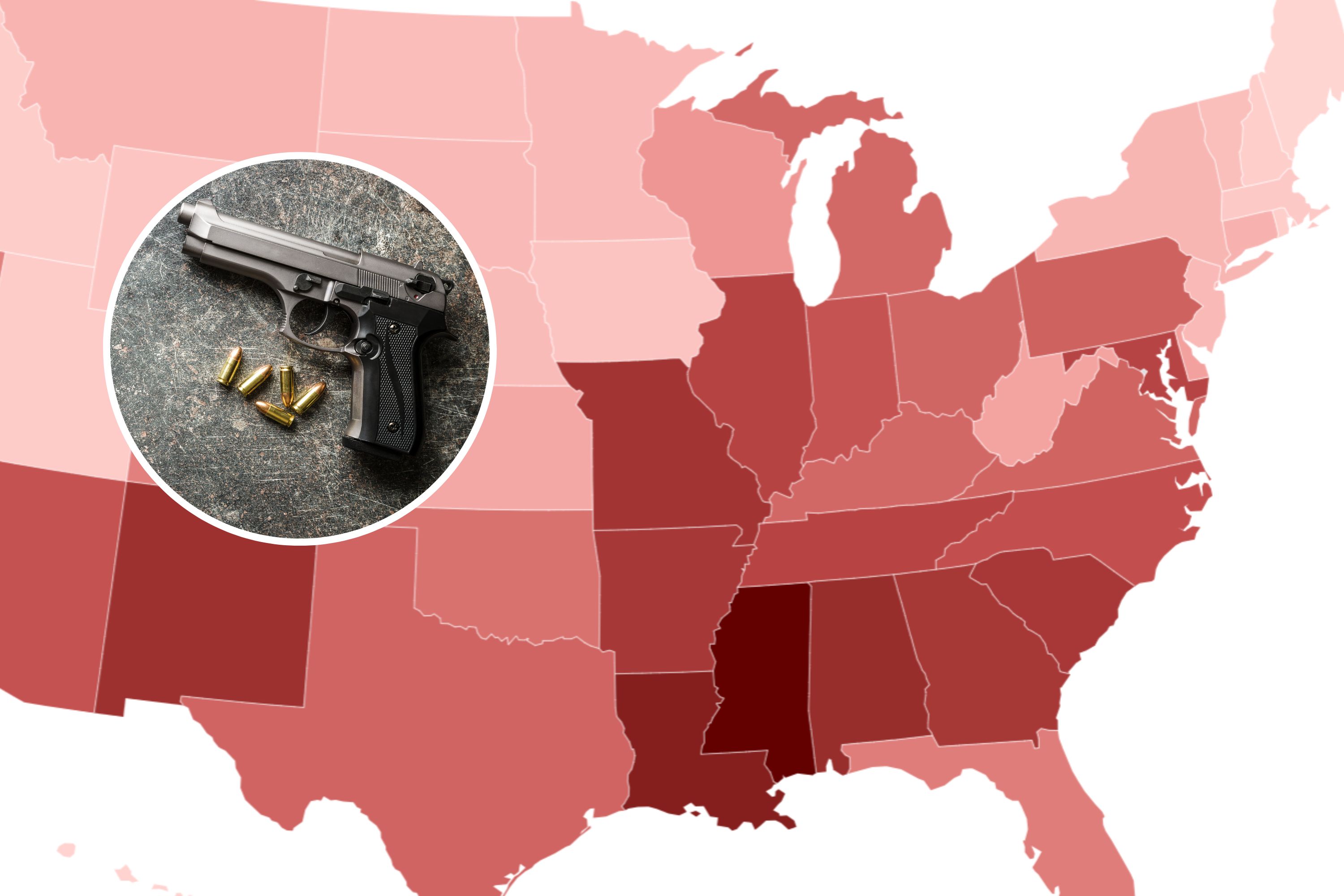Iraq's state-affiliated collective of militias defiantly celebrated its leader being hit by U.S. sanctions, considering it an honor to have him viewed as one of Washington's foes alongside a pair of leading Iraqi and Iranian officials slain a year ago at the Baghdad Airport in a drone attach ordered by President Donald Trump.
That assassination elicited outrage across Iraq, Iran and other parts of the region. Just days after the one-year anniversary of the event, which was noted by Iran and other nations in the region, a Popular Mobilization Forces spokesperson told Newsweek the group welcomed Fayyadh's enemy status in the eyes of the U.S.
"We congratulate the friend of the martyrs, Popular Mobilization Committee Chairman Falih al-Fayyadh, on his inclusion with the honorable ones whom the U.S. administration considers enemies," the spokesperson said in a statement sent to Newsweek.
The spokesperson then added in hashtag form alongside a peace sign: "Our leaders are terrifying America."
The statement also linked Fayyadh to Iran's Revolutionary Guard Quds Force, whose leader, Qassem Soleimani, was killed last year alongside Fayyadh's deputy, Abu Mahdi al-Muhandis, at Baghdad International Airport.
Secretary of State Mike Pompeo announced Friday that the U.S. was designating Popular Mobilization Committee Chairman Falih al-Fayyadh "for his role in violence against Iraqi protesters in 2019."
The former Iraqi national security adviser is accused of overseeing paramilitary units that opened fire on protesters who were demonstrating against high unemployment amid government corruption, broken and crumbling infrastructure, and the presence of undue foreign influence.

The U.S. sanctions came just a day after Iraq's Supreme Judicial Council announced that the Rusafa Investigation Court had issued a warrant for Trump's arrest over the airstrike last year. Trump was charged under Iraq's Penal Code Article 406, which deals with homicide cases "punishable by death."
While Trump was unlikely to face trial in Iraq, even after he loses office in 12 days, the move was seen as a symbolic affirmation of Iraq's sovereignty.
The Popular Mobilization Forces have been accused by the Iraqi government of acting outside the law, as it struggles to reign in their rogue rocket attacks against U.S. positions while carefully balancing respect for the influential entities whose history and status speak to the complexity of Iraq's insecurity and sectarianism.
The Popular Mobilization Forces—sometimes referred to by their Arabic name, Al-Hashed Al-Shaabi—are comprised largely of Iraqi Shiite Muslim militias, a number of whom have close ties to neighboring Iran. Two of the groups, Kataib Hezbollah and Asaib Ahl al-Haq, are considered by the U.S. to be terrorist organizations, as is Iran's own Revolutionary Guard.
Many affiliated groups first arose in the wake of the 2003 U.S. invasion that toppled President Saddam Hussein, which paved the way for rival insurgencies led by Shiite and Sunni Muslim groups, both of whom targeted U.S. forces regarded as occupiers. The latter factions would go on to form Al-Qaeda in Iraq and its successor, the Islamic State militant group (ISIS).
The Popular Mobilization Forces were formed in response to the rise of ISIS and lightning gains across Iraq in 2014. Militias played a frontline role against the jihadis, who were also targeted by security forces, Kurdish fighters and a U.S.-led coalition.

Efforts by both Iran—spearheaded by Soleimani—and the U.S. went toward supporting Iraq's fight against ISIS, but the convergence of interests did not last. The defeat of their common foe and the U.S. withdrawal from a 2015 nuclear deal following Trump's election led to a substantial rise in tensions between Washington and Tehran.
Iraq served as the venue for tit-for-tat actions between the U.S. and pro-Iran factions of the Popular Mobilization Forces. A severe, deadly escalation erupted in late 2019, culminating with militiamen and their supporters laying siege to the U.S. embassy on New Year's and the killing of Soleimani, Muhandis and their entourage just two days later at Baghdad International Airport.
Iran responded with a missile barrage on U.S. positions and Iraqi lawmakers have voted to expel U.S. forces. The Trump administration has transferred a number of sites to Iraqi control and announced the withdrawal of 500 troops, leaving the official count at 2,500, but no comprehensive timeline to pull out has been established.
Newsweek recently spoke with an Iraqi official who felt the Popular Mobilization Forces actions outside of the state's authorities had to be curtailed, but expressed the opinion that the killing of Soleimani and Muhandis "has not made about Iraq safer" as it impeded command and control of the militias now challenging Prime Minster Mustafa al-Kadhimi's mandate.
Uncommon Knowledge
Newsweek is committed to challenging conventional wisdom and finding connections in the search for common ground.
Newsweek is committed to challenging conventional wisdom and finding connections in the search for common ground.
About the writer
Based in his hometown of Staten Island, New York City, Tom O'Connor is an award-winning Senior Writer of Foreign Policy ... Read more





